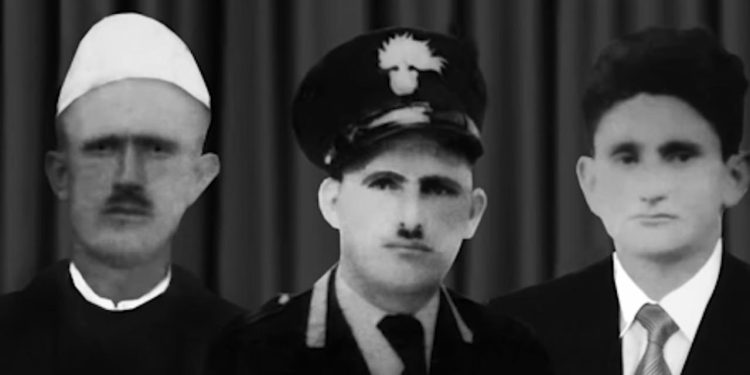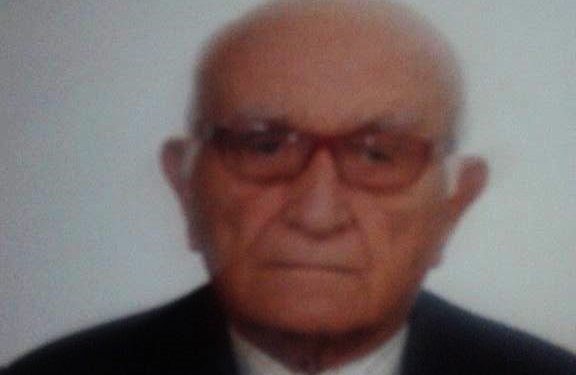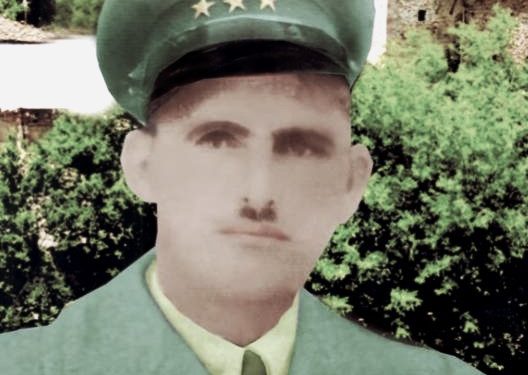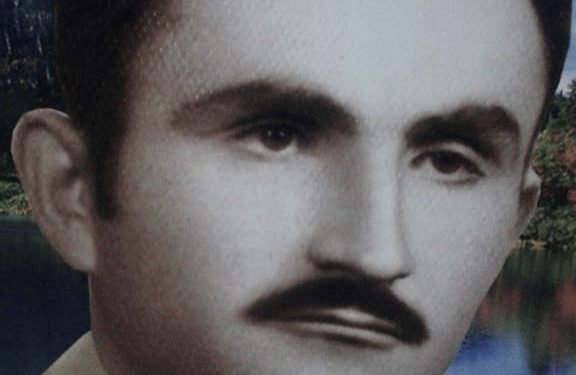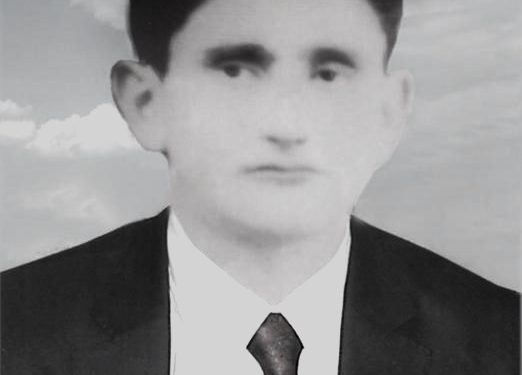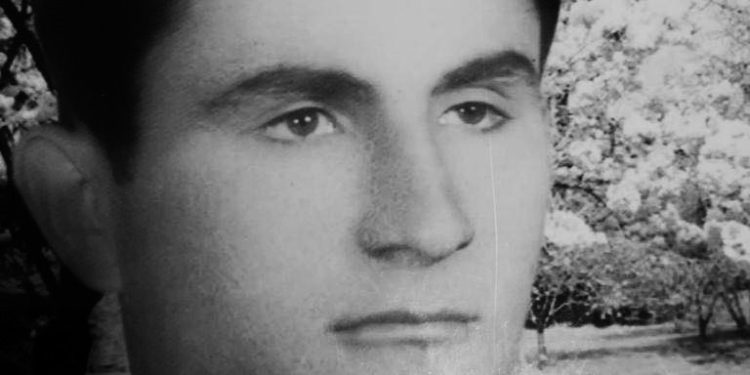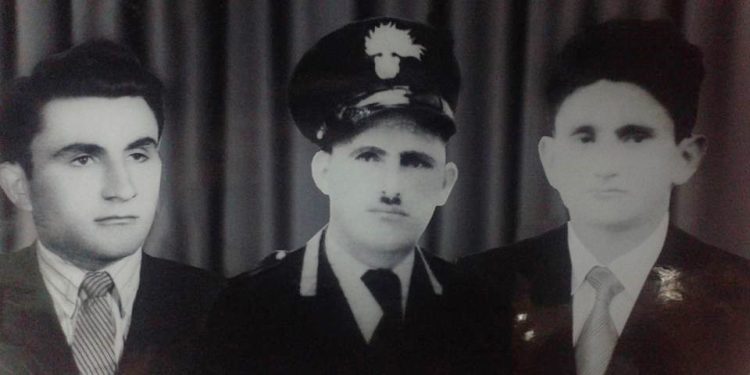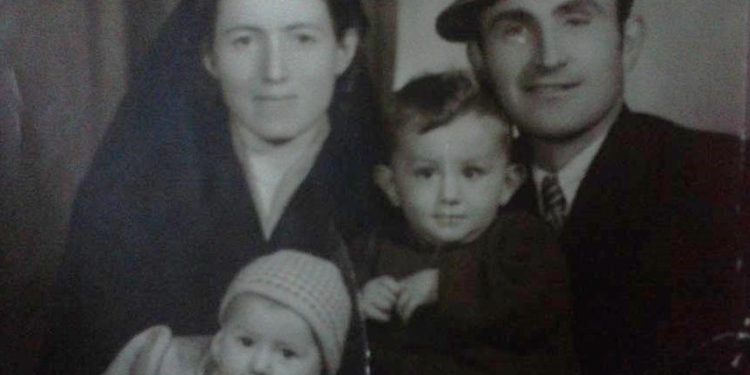Memorie.al / Gjon Gjura is a pensioner living in the city of Laç, Kurbinit, who has reached ninety years of life. When he begins to recount the drama of his family, the Gjura family, he first mentions his brother, Gjergji. And here’s why: Gjergji had completed his studies at the Orosh boarding school and right after the end of World War II, he was appointed as a teacher…! He had become passionate about this profession, and the older brother had sent Gjon to the Pedagogical School in Elbasan. He had a brilliant start, but only that…!
The recounting of Gjon Gjura:
“On December 31, 1948, I was called to the directorate of the boarding school and was told to take my suitcase, as I would be sent somewhere else. Little did I know that I would be sent to the infamous camp of Tepelena at such a young age, when fate had lured me onto the path of knowledge. When I found out why they were sending me there, I was deeply shaken.
Gjergj Nikoll Gjura, after working for some time as a teacher, was appointed to the Executive Committee of Mirdita, based in Shpal. The chairman at that time was Bardhok Biba. As a young man who supported the newly established power, he soon became disillusioned. Raised in a typical traditional family from the Spaç region, he could not swallow the injustices that the new government was committing.
In Mirdita, a major persecution had begun, especially against the local elite and the Catholic clergy. Abbot Frano Gjini had died under torture, and similarly, the martyr teacher Marije Tuci, daughter of the Princely Line of Gjomarkaj, was being pursued. Gjergji’s coldness was identified by the authorities and he became their target…! Thus, four men of this lineage decided to flee.
In October 1948, as documented, Gjergj Nikoll Gjura, Nikoll Preng Gjura, Zef Pjetër Gjura, and Nikoll Pal Gjura, together with the chairman of the Gjanë Council (Regional Council), Zef Preng Gjoni and his son, Gjergj Zef Gjoni, sought shelter at a hut in the Munella Mountain, where they tended the livestock, then moved through Fan, staying for a while in safe bases…”
The two winters of that year!
Between Tirana and Belgrade, an ice mountain had risen. The communist head of the fabricated federation after World War II had ruptured alliances with Stalinist Moscow, which was the strategic ally of the Albanian communists. In that autumn of 1948, the First Congress of the Albanian Communist Party was called, where the revisionist line of Marshal Tito was denounced, further escalating the political situation both domestically and abroad.
Extreme poverty had plagued the entire country…!
For the Gjura family, this was the first winter of that year, but the second would come as a bitter one among the mountains of the North, with a continental climate. On the shores of Fan and Drin, their small group was not alone, as dozens of refugees from Mirdita waited to cross the border, through that unprecedented winter. In December or early January, they are believed to have crossed the state border. And since then, no word about their fate, only slander was thrown at them, labeling them as “enemies and traitors of the homeland…!”
The multi-act drama of familial persecution.
The Gjuraj family is originally from Spaçi, Dheu, which, together with Oroshi and Kuzhnini, forms the basis of the Mirdita union with its 12 bajraks, widely known for self-governance under the codes of the ancient constitution, the Kanun of Lekë Dukagjini. Based on these principles, the large family of Pjetër Gjura operated, with about 40 members. When the men of this family came down from the mountains, after a few days, all the family members were sent to the infamous camp of Tepelena, where they would be treated as slaves.
Gjoni begins to count: “Grandfather, grandmother, mother, sisters, cousins…! After some time,” says Gjoni, “we received an order for a few children to be released from the camp if there was someone who could look after them. And I was released before my family, but never to return to my birthplace in Spaç, which later the dictatorship would turn into the most infamous prison in Albania…! I finished the 7-year school in Breg i M’ates.
At that time, there was a great need for teachers, and a good word from someone in the Executive Committee of the Lezhë district (Shaqir Dibra) allowed me to continue a course to become a teacher, and fate decided that I would work for a while, until the Party corrected the mistake it had made with me and expelled me from education. Here, my dream of becoming a teacher was extinguished, definitively…!”
The request to the Albanian state!
As is known, the Albanian diaspora after World War II spread across all continents, but in general, they were able to connect with their families. The Gjuraj family and many other refugees from Mirdita, Mati, and Luma who crossed the border into Yugoslavia never established communication with their families. Gjon Gjura presents us with a pile of letters he has sent to the Albanian government, asking for information about their whereabouts or their graves.
From the mid-1950s until 2014, all responses from the Albanian state have been: “There is no information on these persons…! The last response is from the head of the secret services of the Republic of Albania: “This institution is not obliged to provide classified information…”! Indeed, the Albanian state knows nothing about these citizens who crossed the border in 1948, that is, 76 years ago…?! How secret must their disappearance have been so they could never be mentioned? So much mystery?!
The legacy
“As long as my grandfather and grandmother were alive, and later my mother and other elders of the family, they left us a legacy, that with hope in God, we should seek their bones and bring them to our land. For many years, I have carried this legacy from my ancestors like a stone upon my shoulders. I have always hoped that someone, somewhere, would bring news about them. I still hope and will continue to hope as long as I draw breath. A year ago, I thought to gather the descendants and leave them the legacy, as age takes its toll, but I changed my mind.
I built a family grave in the Laç cemetery, where my parents rest. Four graves are empty. They await the day when the legacy will be fulfilled, and the bones of Gjergj Nikoll Gjurës, Nikoll Preng Gjurës, Zef Pjetër Gjurës, and Nikoll Pal Gjurës will rest forever beside their blood relatives, in Albanian soil. But not only their bones.
There are hundreds of Albanian families waiting to find the graves lost due to the dictatorship. We hope to lay a bouquet of flowers there as well…! This grave is not only a tribute but also a message and appeal to Albanian society and state, to show more humanity and justice for this social category, a victim of the most brutal dictatorship in Europe,” concludes his story, 90-year-old Gjon Gjuraj, without losing hope of finding out what happened to his two brothers and other relatives! /Memorie.al




